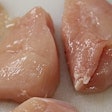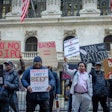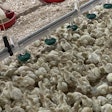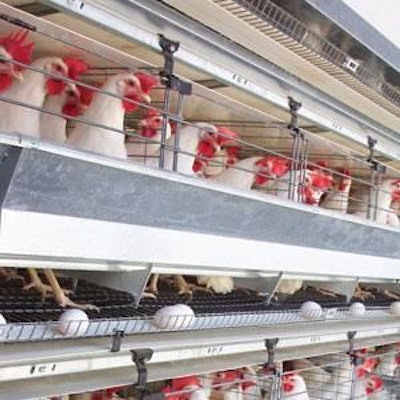
In what could be one of the biggest and most important battles of U.S. egg industry history, the United Egg Producers (UEP) and state organizations are formulating plans on how to counter efforts by animal rights organizations to ban caged egg production.
Judging from the stand-room-only audience of more than 200 at UEP's animal welfare committee meeting in Atlanta preceding the group's board meeting in January, industry leaders take the issue very seriously.
The meetings were held in conjunction with the International Poultry Expo and International Feed Expo.
Foremost in the discussion was how to combat the effort spearheaded by the Humane Society of the United States (HSUS) to ban caged production in California.
Officials said that while they believed HSUS would be successful in obtaining sufficient signatures to place a measure before California voters come November, the egg industry will be successful in defeating a cage ban referendum.
More Difficult than HSUS Thought
HSUS has found it more difficult than it thought to obtain signatures, "and that's good news for us," said Pacific Poultry and Egg Association's (PPEA) executive director, Debbie Murdock. "They're having to spend about $4 per signature."
Signature Verification
Because the signatures must be verified, "we won't know until late June if it's on the ballot." Murdock added that "more people are concerned about their pocketbook," than if layers are raised in cages or run free, and, research by agricultural researcher Adrian Williams at Cranfield University in the United Kingdom shows that layers raised under cage-free conditions leave a larger carbon footprint than caged layers.
"We're optimistic we will defeat the effort," she said. Officials did not discuss the specifics of how they will combat the effort by HSUS and others, however.
"All Hands on Deck"
While the primary focus right now is on California, "we may see activity in other states," said UEP's attorney Kevin Haley. He added that "we have a lot of good to show." Haley continued, however, that some egg producers have hidden behind their bio-security mantra, while PETA (People for the Ethical Treatment of Animals) have put comic books in the schools that denounce animal agriculture. "As we fight these battles, we need all hands on deck and much more money," Haley said.
Gene Gregory, president and CEO of UEP said in an interview following the meeting that right now, the board of his organization has authorized to help states like California in two ways:
Funding, "which may grow a little," is available to help states, and
Consultants they work with on cage bans are available to states.
Part of what the industry is fighting, one board member said, "is horrible footage" on PETA's web site. What is needed, he said, are virtual tours of modern egg production facilities than show the positive conditions under which eggs are produced.
Colorado Legislative Effort
One state looking at cage ban legislation is Colorado, "but I'm very comfortable with Colorado. They're (the egg industry) going to win this thing there," Gregory said. He added that it's far easier to defeat legislation than referenda. Gregory continued, however, that "this is very serious. We are in a battle to save our industry. We have to be united."
Gary West, president of JS West, Modesto, Calif., and new board chairman of UEP, said, "I'm positive" we will win the battle in his state, but he added that winning will be costly.
Mark Oldenkamp, vice president of northwest operations for Valley Fresh Foods, Woodburn, Ore., and chairman of UEP's animal welfare committee, said that while the anti-cage focus right now is on California, "my biggest fear is that some in the industry will look at their states" as being exempt from a similar battle. He added that UEP's staff and experience can be invaluable to states facing referenda or legislative issues as they emerge.
At the moment, though, he agrees that "California is the biggest challenge, and we have to believe it's winnable." He added that California could be a wedge for other states.
"How that turns out will affect us deeply. We need to be joined at the hip." Oldenkamp continued that the firm in California that has been hired to win the contest for the industry "has an excellent track record."
Federal Issues
On the federal front, there have been some successes over the past year, said UEP Washington representative Howard Magwire.
"A big one is that there is no animal welfare title in the farm bill, and a year ago we didn't know. He added, "We also got some poultry research" money, and 100 percent indemnification of AI. Magwire continued, however, that "the tough thing looming is energy policy." There is not much chance of ethanol policy reform in an election year, he continued.

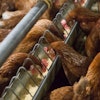

.jpg?auto=format%2Ccompress&fit=crop&h=167&q=70&w=250)







